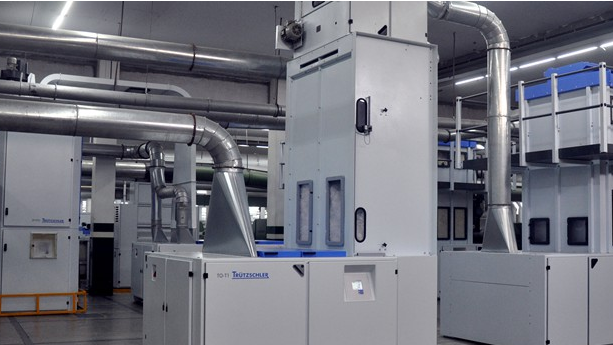The All Pakistan Textile Mills Association in the Punjab has accused India of waging “an economic war” by targeting the textile industry in Pakistan. Association Chairman Aamir Fayyaz said in a press conference on Saturday, “The textile industry is the largest industrial base of Pakistan and India has targeted it”. Sat among his audience was his outgoing counterpart, SM Tanveer.
Chairman Fayyaz said, “India has imposed a 28-percent import duty on yarn from Pakistan against five percent here in Pakistan on the Indian yarn. As a result, we’re closing down at the cost of Indian incentives for its textile industry. The Indian government has spent $66 billion investment on its textile industry under the Technology Up-gradation Fund Scheme besides many other incentives.”
He also said his association had clarified to government policymakers that Pakistan’s textile industry could never compete with the Indian government. The high cost of doing business has led to the closure of some 15 textile mills so far. Thousands of workers have been laid off so far and this situation amounts to the murder of jobs. The association has engaged the government since August but no tangible relief has so been announced. We’ve met the federal finance minister in August followed by a detailed meeting with the Prime minister in September. The announcement of a textile package has already been too late and fears are piling up that it could also be too little.”
While mentioning about the nine-point remedial measures sought by the association by the government, he claimed that the high cost of energy had jeopardised the textile industry. “We are getting electricity at 14 cents against 9 cent in India. The government has shifted system losses and non-recovery of bills to the textile industry, which is operating on the independent feeders.”
He then urged the government to remove all such burdens on the textile industry and ensure availability of electricity and gas in winter. “Textile exports should also be freed from innovative taxes, having an accumulative impact of five percent.”
Listing down other demands, he said the extension of “the long-term finance facility” should be to the spinning industry, introduction of focus market intensive scheme, strengthening of domestic market, export refinance facility to exporters and payment of refund claims should be made available to the industry. He said he hoped the government would incorporate all these measures to the much-awaited textile package for the textile industry, but lamented that the government had made the textile industry as a revenue earner instead of employment creation industry. “Considering the high cost of doing business, we have asked the government for devaluation of the rupee, but the government has assured of alternatives, which are awaited yet on our part,” he said.
We buy and sell textile machinery

Leave a Reply
You must be logged in to post a comment.